The Press Congratulates the Guggenheim Fellows
Yesterday, the John Simon Guggenheim Memorial Foundation announced its eighty-sixth class of fellows. Among those honored with the prestigious award were a number of familiar faces at the Press. We recognize and congratulate each below.
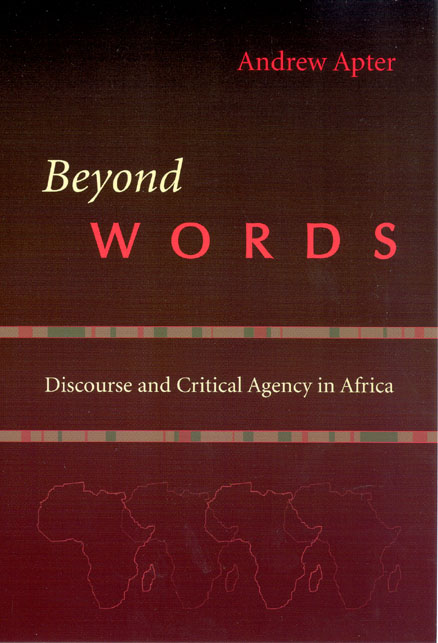 Andrew Apter, professor of history and anthropology at University of California, Los Angeles, studies ritual, memory, and indigenous knowledge. He has published three books with the University of Chicago Press—including Black Critics and Kings: The Hermeneutics of Power in Yoruba Society and The Pan-African Nation: Oil and the Spectacle of Culture in Nigeria; in his most recent book, Beyond Words: Discourse and Critical Agency in Africa, Apter confronts colonialist depictions of Africa in the discipline of anthropology and develops an ethnographic practice that transcends the politics of the continent’s imperial past.
Andrew Apter, professor of history and anthropology at University of California, Los Angeles, studies ritual, memory, and indigenous knowledge. He has published three books with the University of Chicago Press—including Black Critics and Kings: The Hermeneutics of Power in Yoruba Society and The Pan-African Nation: Oil and the Spectacle of Culture in Nigeria; in his most recent book, Beyond Words: Discourse and Critical Agency in Africa, Apter confronts colonialist depictions of Africa in the discipline of anthropology and develops an ethnographic practice that transcends the politics of the continent’s imperial past.
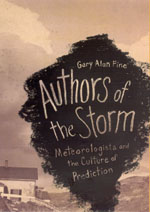 A professor of sociology at Northwestern University, Gary Alan Fine has published six book with the University of Chicago Press, covering topics from little league baseball to outsider art. His most recent book, Authors of the Storm:
A professor of sociology at Northwestern University, Gary Alan Fine has published six book with the University of Chicago Press, covering topics from little league baseball to outsider art. His most recent book, Authors of the Storm:
Meteorologists and the Culture of Prediction, takes us inside Storm Prediction Center in Oklahoma and the National Weather Service in Washington, D.C, to see first hand how meteorologists and forecasters predict the weather.
 Though perhaps best known as the editor of the esteemed Virginia Quarterly Review, Ted Genoways appears on the Press’s list as a translator of The Selected Poems of Miguel Hernández . One of the most important poets of the twentieth century—equal in distinction to Federico García Lorca, Pablo Neruda, and Octavio Paz—Hernández never received his just acclaim. In this celebrated translation, Genoways makes Hernández’s extraordinary oeuvre available in an authoritative bilingual edition. Featuring some of the most tender and vigorous poetry on war, death, and social injustice written in the past century, nearly half of the poems in this volume appear in English for the first time, making it the most comprehensive bilingual collection of Hernández’s work available.
Though perhaps best known as the editor of the esteemed Virginia Quarterly Review, Ted Genoways appears on the Press’s list as a translator of The Selected Poems of Miguel Hernández . One of the most important poets of the twentieth century—equal in distinction to Federico García Lorca, Pablo Neruda, and Octavio Paz—Hernández never received his just acclaim. In this celebrated translation, Genoways makes Hernández’s extraordinary oeuvre available in an authoritative bilingual edition. Featuring some of the most tender and vigorous poetry on war, death, and social injustice written in the past century, nearly half of the poems in this volume appear in English for the first time, making it the most comprehensive bilingual collection of Hernández’s work available.
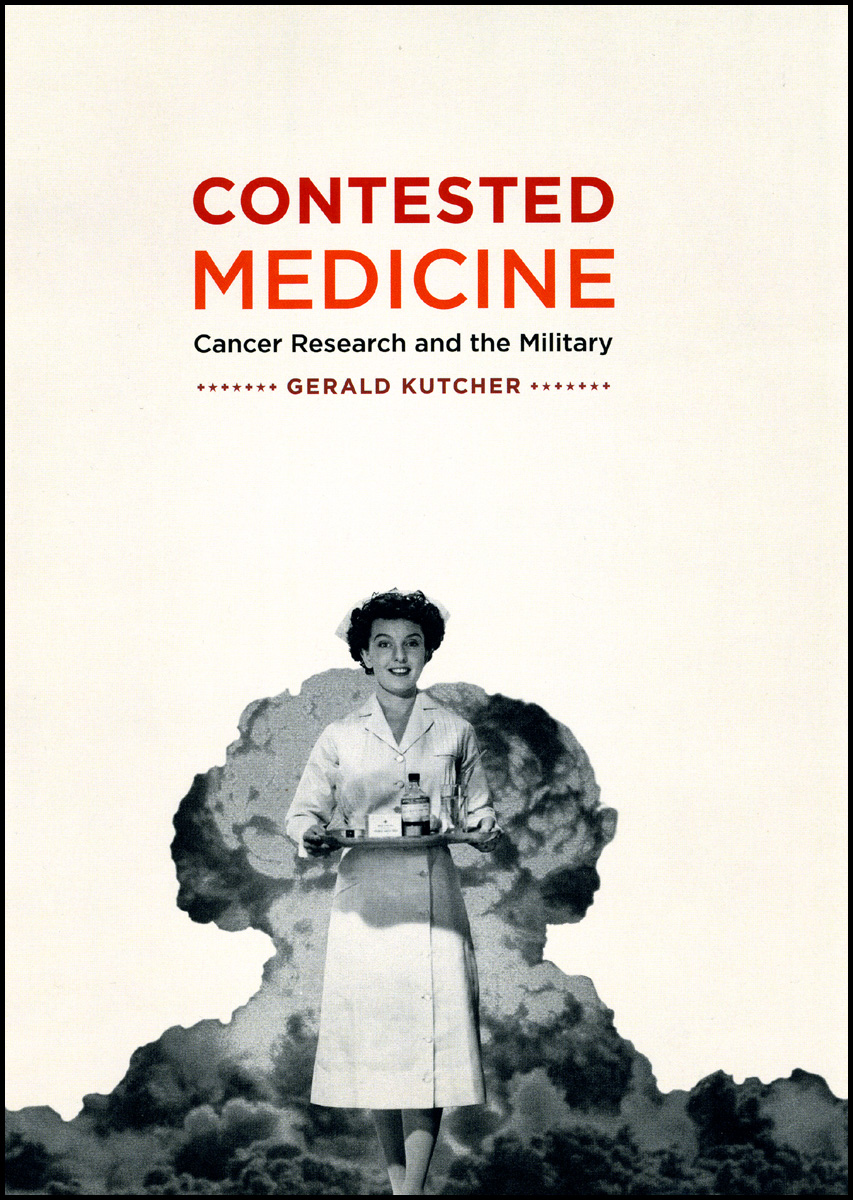 Gerald Kutcher, professor of the history of medicine at SUNY Binghamton, published his first book with the Press just last year. Contested Medicine: Cancer Research and the Military takes as its focus University of Cincinnati radiologist Eugene Saenger’s radiation experiments on human test subjects with advanced cancer. Using the Saenger case as a means to reconsider cold war medical trials, Kutchers examines the inherent tensions at the heart of clinical studies of the time. Emphasizing the deeply intertwined and mutually supportive relationship between cancer therapy with radiation and military medicine, he explores post—World War II cancer trials, the efforts of the government to manage clinical ethics, and the important role of military investigations in the development of an effective treatment for childhood leukemia.
Gerald Kutcher, professor of the history of medicine at SUNY Binghamton, published his first book with the Press just last year. Contested Medicine: Cancer Research and the Military takes as its focus University of Cincinnati radiologist Eugene Saenger’s radiation experiments on human test subjects with advanced cancer. Using the Saenger case as a means to reconsider cold war medical trials, Kutchers examines the inherent tensions at the heart of clinical studies of the time. Emphasizing the deeply intertwined and mutually supportive relationship between cancer therapy with radiation and military medicine, he explores post—World War II cancer trials, the efforts of the government to manage clinical ethics, and the important role of military investigations in the development of an effective treatment for childhood leukemia.
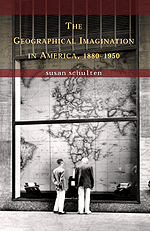 Associate professor of United States history at the University of Denver, Susan Schulten is the author of The Geographical Imagination in America, 1880-1950, which traces U.S. attitudes toward world geography from the end of nineteenth-century exploration to the explosion of geographic interest before the dawn of the Cold War. In telling the story of Americans beginning to see the world around them, Schulten provides an engaging study of geography, cartography, and their place in popular culture, politics, and education.
Associate professor of United States history at the University of Denver, Susan Schulten is the author of The Geographical Imagination in America, 1880-1950, which traces U.S. attitudes toward world geography from the end of nineteenth-century exploration to the explosion of geographic interest before the dawn of the Cold War. In telling the story of Americans beginning to see the world around them, Schulten provides an engaging study of geography, cartography, and their place in popular culture, politics, and education.
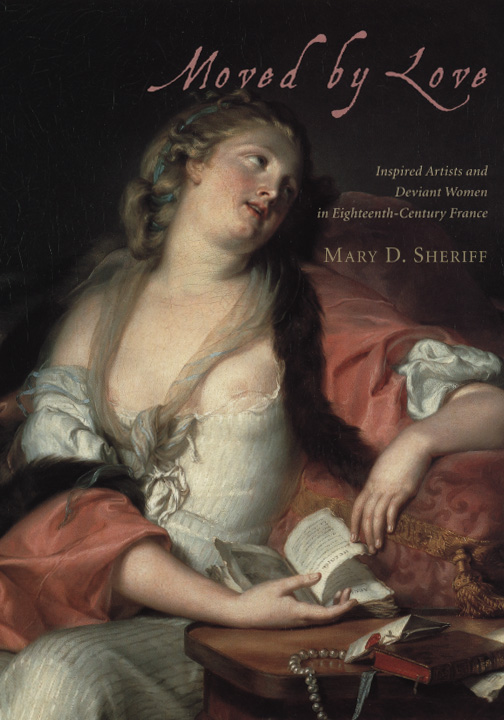 A distinguished professor of art at the University of North Carolina at Chapel Hill, Mary D. Sheriff has authored three books for the University of Chicago Press, including Fragonard: Art and Eroticism and The Exceptional Woman: Elisabeth Vigee-Lebrun and the Cultural Politics of Art. In her most recent book, Moved by Love: Inspired Artists and Deviant Women in Eighteenth-Century France, Sheriff draws on evidence from the visual arts, literature, philosophy, and medicine to scrutinize the different forms of deviance ascribed to male and female artists at a moment in French history when the ability to “lose oneself” in a character or scene was thought to lead to sexual deviance, mental illness, and even death.
A distinguished professor of art at the University of North Carolina at Chapel Hill, Mary D. Sheriff has authored three books for the University of Chicago Press, including Fragonard: Art and Eroticism and The Exceptional Woman: Elisabeth Vigee-Lebrun and the Cultural Politics of Art. In her most recent book, Moved by Love: Inspired Artists and Deviant Women in Eighteenth-Century France, Sheriff draws on evidence from the visual arts, literature, philosophy, and medicine to scrutinize the different forms of deviance ascribed to male and female artists at a moment in French history when the ability to “lose oneself” in a character or scene was thought to lead to sexual deviance, mental illness, and even death.
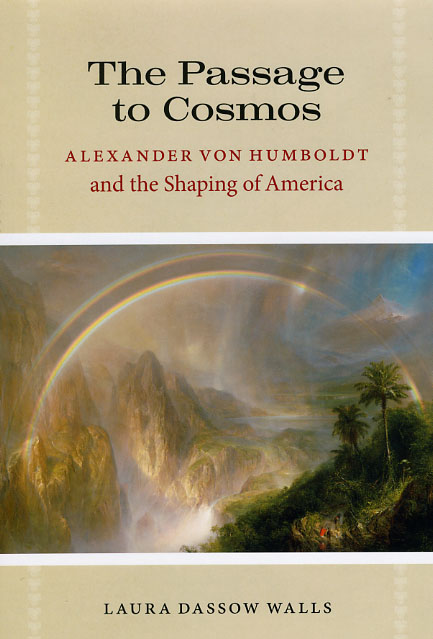 And finally, University of South Carolina English professor Laura Dassow Walls was recognized for her work on American Transcendentalism. But it was a different mode of thought, originating from different country, that Walls considered in her 2009 book The Passage to Cosmos: Alexander von Humboldt and the Shaping of America. In it, Walls traces Humboldt’s ideas for Cosmos, the book that crowned his career, to his 1799 journey to the Americas, where he first experienced the diversity of nature and of the world’s peoples—and envisioned a new cosmopolitanism that would link ideas, disciplines, and nations into a global web of knowledge and cultures. In reclaiming Humboldt’s transcultural and transdisciplinary project, Walls situates America in a lively and contested field of ideas, actions, and interests, and reaches beyond to a new worldview that integrates the natural and social sciences, the arts, and the humanities.
And finally, University of South Carolina English professor Laura Dassow Walls was recognized for her work on American Transcendentalism. But it was a different mode of thought, originating from different country, that Walls considered in her 2009 book The Passage to Cosmos: Alexander von Humboldt and the Shaping of America. In it, Walls traces Humboldt’s ideas for Cosmos, the book that crowned his career, to his 1799 journey to the Americas, where he first experienced the diversity of nature and of the world’s peoples—and envisioned a new cosmopolitanism that would link ideas, disciplines, and nations into a global web of knowledge and cultures. In reclaiming Humboldt’s transcultural and transdisciplinary project, Walls situates America in a lively and contested field of ideas, actions, and interests, and reaches beyond to a new worldview that integrates the natural and social sciences, the arts, and the humanities.
Congratulations to all the Guggenheim fellows!